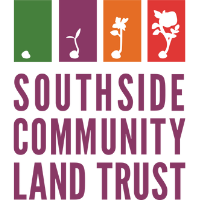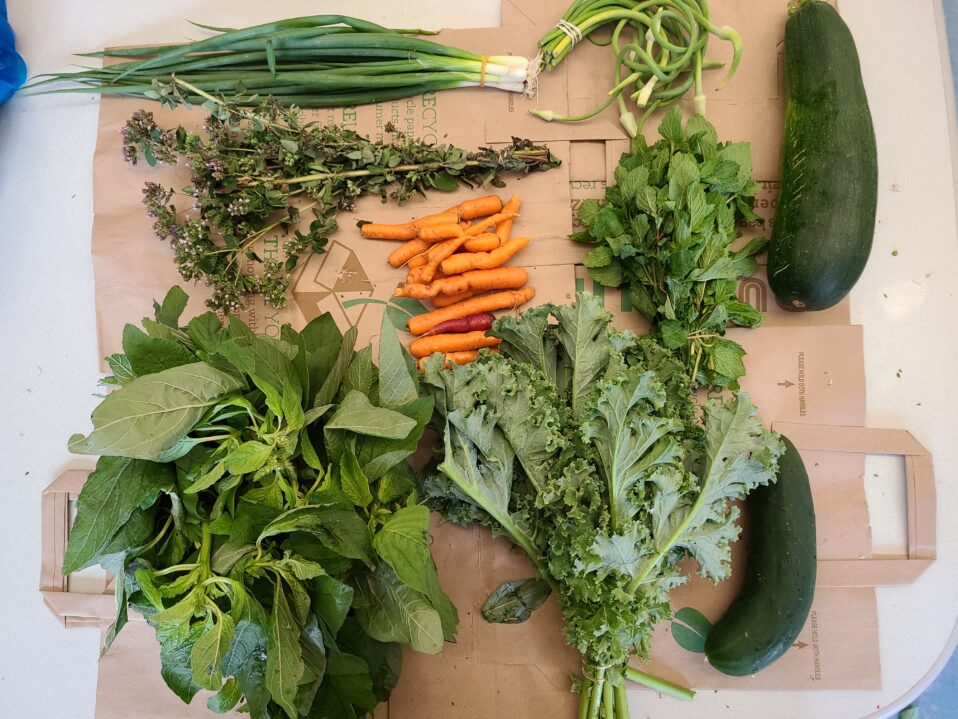“Let food be thy medicine.”
This adage is attributed to the ancient Greek physician, Hippocrates, often referred to as the father of Western medicine. However, today the advice is deeply neglected, although it could solve many of the diet-related health inequities we face in our communities.
This summer, in collaboration with the Integra Community Care Network, the Family Care Center of Pawtucket, the Pawtucket Family YMCA, and Groundwork RI, SCLT participated in its first produce prescription pilot, VeggieRx, which is enabling healthcare workers to “treat” patients with nutritious food.
As described by Integra Program Manager Brady Dunklee at the start of the pilot, “[through VeggieRx] we hope to demonstrate that we can connect food-insecure patients to healthy produce, while sourcing from small farmers and gardeners in local communities.
“We view this work through a health equity lens,” he continued, “food insecurity and economic scarcity disproportionately impact communities of color, a dynamic that the pandemic has accelerated. This model finds supply and demand in communities that are hardest hit and brings in healthcare providers as part of the solution.”
Working with seven of the farmers in SCLT’s Produce Aggregation Program, VeggieRx has distributed over 500 shares of vegetables every other Friday since July to patients of the Family Care Center and seniors at the YMCA. Each share includes vegetables harvested days before by farmers in Providence or Cranston.
Vegetable prescription programs are a relatively new response to the need for equitable access to the health and economic benefits of growing and eating locally. The first programs, piloted by Wholesome Wave, emerged in 2010 and have since expanded to 12 states (including R.I.) and D.C. Recent produce prescription programs have been funded with $250 million from the 2018 Farm Bill. Data and insights from these programs will help determine future funding.
Along with federal dollars, funding for the programs has also come from state, corporate, and private foundations. However, state and municipal-level legislation and public health policy is also needed. A critical step will be for healthcare agencies, providers, and patients alike to advocate for these programs in health insurance plans.
Doctors, especially primary care physicians, play a key role in the program’s success because of their influence over patients.
“VeggieRx has been a great way for us to promote healing and wellness while engaging with the community outside the confines of the clinic,” said Sam Donovan, a Brown University resident at the Family Care Center.
SCLT, Integra, and the Family Care Center have held monthly Zoom conversations about the future of VeggieRx once the pilot ends in November. All foresee this as an ongoing partnership with room for growth in Pawtucket, Central Falls, and Providence.
Food-as-medicine is not a new or innovative approach to health and wellness, but it is one that is worth exploring in a much deeper way. With universal healthcare still being debated, it may be awhile before programs like it are widely available. Yet, imagine a world where we are all afforded access to fresh, local vegetables grown by a farmer not far from our own doorstep, one in which equity is created through every bite of food on our plate.
– Jazandra Barros
SCLT VeggieRx Project Director


